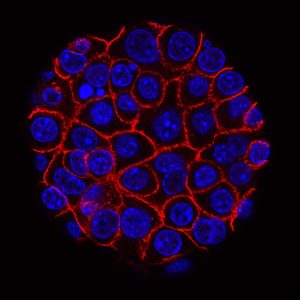Nexavar shows promise in breast cancer
pharmafile | September 24, 2009 | News story | Sales and Marketing | Cancer, Nexavar, breast cancer
Bayer’s Nexavar has been shown to significantly extend progression-free survival in patients with advanced breast cancer in a new phase II trial.
The company, which developing the drug with Onyx, said patients receiving the drug with oral chemotherapeutic agent capecitabine saw a 74% improvement in the time they lived without the disease progressing, compared to those who received placebo and chemotherapy.
Dimitris Voliotis, vice president of global clinical development oncology at Bayer, said: “These data represent a potentially significant advance in the treatment of breast cancer, which is the second leading cause of cancer-related death in women.
“In addition to the positive signal generated in this trial, Bayer and Onyx are committed to the development of Nexavar in breast cancer in a variety of settings through a robust clinical programme.”
Statistically the difference in median progression-free survival of Nexavar and capecitabine compared with capecitabine and placebo was 6.4 months vs. 4.1 months.
The trial results were announced at the joint 15th European CanCer Organisation (ECCO) and 34th European Society for Medical Oncology (ESMO) Multidisciplinary Congress in Berlin, Germany.
The study evaluated Nexavar in combination with the oral chemotherapeutic agent capecitabine in 229 patients and all patients had locally advanced or metastatic HER-2 negative breast cancer and had received no more than one prior chemotherapy.
Overall, treatment with Nexavar plus capecitabine showed an acceptable tolerability, without any new side effects.
Nexavar is an oral therapy approved in more than 80 countries for liver cancer, and in more than 90 countries for the treatment of patients with advanced kidney cancer.
In Europe, it is approved for treatment of hepatocellular carcinoma and for the treatment of patients with advanced renal cell carcinoma (RCC) who have failed prior interferon-alpha or interleukin-2 based therapy, or are considered unsuitable for such therapy.
Related Content

Geneos Therapeutics shares data from phase 1/2 trial for cancer vaccine
Geneos Therapeutics has announced that it has published positive safety, immunogenicity and efficacy data from …

FDA accepts BLA for AstraZeneca and Daiichi Sankyo’s datopotamab deruxtecan for breast cancer treatment
AstraZeneca and Daiichi Sankyo have announced that their Biologics License Application (BLA) for datopotamab deruxtecan …

Curve Therapeutics’ CSO publishes research on HIF inhibition for cancer treatment
Curve Therapeutics has announced that its chief scientific officer, Professor Ali Tavassoli has published research …








